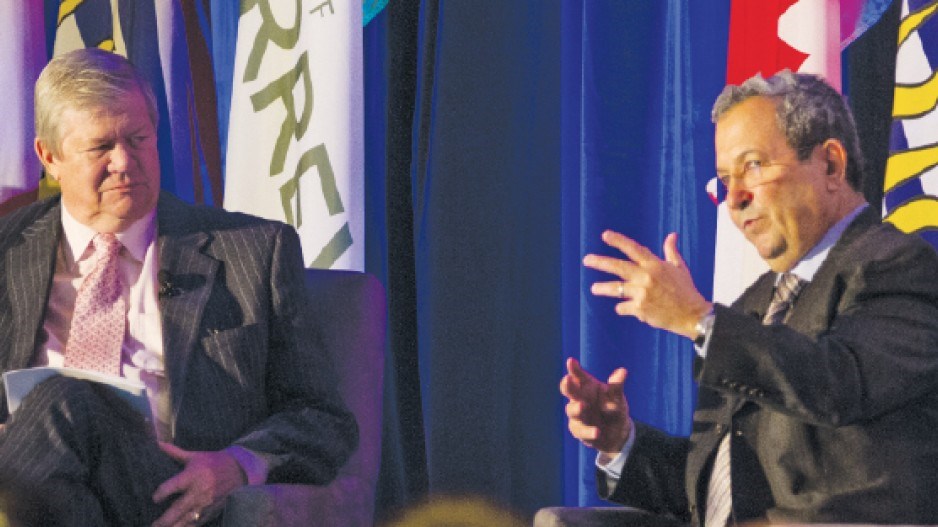Several international politicians shared their countries’ experiences with the worst financial crisis since the Great Depression at the recent 2014 Surrey Regional Economic Summit.
CKNW personality Bill Good interviewed former prime ministers Ehud Barak of Israel, Julia Gillard of Australia and George Papandreou of Greece as part of this year’s international economic panel. The topics centred on how each politician handled the 2008 economic crisis that shook financial markets around the world.
In front of a crowd of hundreds of attendees at the Sheraton Vancouver Guildford Hotel, Good questioned Papandreou about Greece’s government-debt crisis in 2008, triggered by the global economic recession. Papandreou bore the brunt of Greece’s problems when he was elected in 2009.
“When I became prime minister ... our slogan was ‘Either we change or we sink,’” said Papandreou.
“Greece was not a poor country; it was more of a mismanaged country. We had a mismanaged economy, which meant that, because of the crisis, we had to take very drastic measures.”
Papandreou addressed the stress that came with handling more than $150 billion of debt.
“Every day I would tell my wife, ‘I’m not sure I’ll be around as prime minister very much longer.’ She’d say, ‘I think you’re exaggerating,’ and I’d say, ‘I don’t think I’m exaggerating,’” he noted to laughs from the audience.
Good pointed out that Australia wasn’t affected nearly as severely as other countries, but Gillard stressed that politicians around the world had to take lessons out of the 2008 crisis.
“We did not have a recession,” she said. “That doesn’t mean that there weren’t anxious moments, because the nature of the global contagion and the gridlocking financial markets meant that no one was immune.”
Despite the distance from North American and European markets that were hit hardest by the recession, Gillard said Australia’s geographic placement did not necessarily lessen the impact that her country felt.
“In this globalized world, you are kidding yourself if you think, as a business, as a city, as a country, that you can somehow [be sheltered] from global economic events.”
Barak said Israel handled the economic crisis well, though looking forward, he anticipated that further troubles could arise, referring to the current turmoil in Ukraine.
“We had some worries and anxieties but not real damage,” he said. “[But] I think we have to brace ourselves to look for other sources of instability.”
Gillard echoed the same cautious optimism. She added that countries have to be cognizant of new risks that may emerge.
Toward the end of the 70-minute panel discussion, Good steered the conversation to worldwide environmental concerns, including drilling for liquefied natural gas. Papandreou noted that countries need to start researching methods of renewable energy.
“We will have to move in that direction sooner than later,” said Papandreou, pointing to innovations in Germany and other European countries. “Otherwise, we’ll just be destroying economies for the next generation.” •




